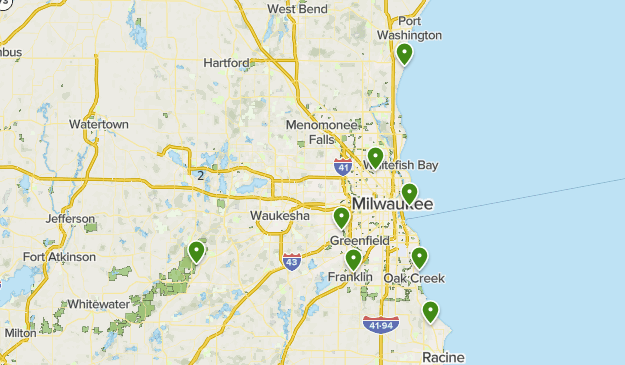Exploring The Sound Perimeter: Music's Influence On Human Connection

Table of Contents
Music as a Universal Language
Music's ability to unite people across the globe is undeniable. It acts as a universal language, capable of conveying emotions and experiences that transcend cultural barriers.
Transcending Cultural Barriers
The popularity of genres like pop, rock, and K-pop demonstrates music's global reach. These genres, and many others, have captivated audiences worldwide, creating a shared cultural experience irrespective of linguistic differences.
- Globally popular genres: Pop, Rock, K-Pop, Reggae, Latin music all demonstrate widespread appeal, showcasing music's ability to connect people across geographical and cultural boundaries.
- Shared emotional responses: Regardless of the language being sung, the emotional core of a song often resonates universally. A melancholic melody evokes sadness, an upbeat tempo generates joy, proving that the emotional impact of music surpasses linguistic limitations.
- Impact of international music festivals: Events like Coachella, Glastonbury, and Tomorrowland bring together diverse audiences united by their love of music, fostering a sense of global community.
Shared Emotional Experiences
Music's power lies in its ability to evoke intense and shared emotional experiences. This shared emotional resonance is a cornerstone of music's influence on human connection.
- Evoking a range of emotions: Music is remarkably effective at evoking nostalgia, joy, sadness, anger, and a multitude of other emotions. This ability to tap into our deepest feelings fosters a sense of empathy and understanding.
- Shared responses during live performances: The collective energy at a live concert, with thousands of people experiencing the same music and emotions simultaneously, creates a potent sense of shared identity and connection.
- Music therapy: The therapeutic use of music further highlights its power to connect with our emotions, providing comfort, healing, and a sense of belonging for individuals facing emotional challenges.
Music and Social Bonding
Beyond its universal appeal, music plays a crucial role in strengthening existing relationships and facilitating new connections.
Strengthening Existing Relationships
Music often becomes the soundtrack of our lives, shaping our memories and strengthening the bonds we share with loved ones.
- Shared playlists: Creating and sharing playlists with friends and family allows for the exchange of musical tastes and the reinforcement of shared experiences and inside jokes.
- Attending concerts together: Sharing a live music experience creates lasting memories and strengthens the bond between individuals.
- Dancing to favorite songs: Dancing together to favorite songs fosters physical intimacy and emotional connection, further strengthening existing relationships.
- Music as a backdrop for memories and conversations: Music provides a rich tapestry of shared experiences, serving as a springboard for reminiscing and meaningful conversations.
Facilitating New Connections
Music provides unexpected opportunities to connect with others, bridging gaps and fostering new friendships.
- Meeting people at concerts: Concerts and music festivals offer a unique environment where strangers with shared musical interests can readily connect.
- Joining fan communities: Online and offline fan communities centered around artists and genres allow individuals to connect with like-minded people, forming new bonds.
- Participating in karaoke: Karaoke sessions offer a fun and relaxed setting for strangers to interact and share their love of music.
- Collaborative music-making activities: Engaging in collaborative music-making, whether it's jamming with friends or joining a choir, promotes a sense of teamwork and connection.
Music in Ritual and Ceremony
Music's influence on human connection extends beyond casual interactions; it plays a pivotal role in rituals and ceremonies across cultures and religions.
Religious and Spiritual Practices
Music has been an integral part of religious and spiritual practices for centuries.
- Hymns, chants, and devotional music: These forms of music play a vital role in collective worship, fostering a sense of unity and shared spirituality among participants.
- The unifying power of communal singing: Singing together in religious settings creates a powerful sense of community and shared purpose.
Social and Cultural Celebrations
Music is inextricably linked with social and cultural celebrations, providing a framework for communal bonding and shared experiences.
- Wedding songs: Music forms a crucial part of wedding ceremonies, setting the tone and enhancing the emotional impact of the event.
- Funeral dirges: Music provides solace and comfort during times of grief, facilitating shared mourning and remembrance.
- National anthems: National anthems serve as powerful symbols of national unity, fostering patriotism and shared identity.
- Celebratory music at festivals and public gatherings: Music often forms the central element of festivals and public gatherings, creating a vibrant atmosphere of shared joy and celebration.
Conclusion
In conclusion, music's influence on human connection is undeniable. It acts as a universal language, transcending cultural and linguistic barriers, fostering shared emotional experiences, and strengthening social bonds. Music's role in rituals and ceremonies further underscores its importance in shaping human interactions and creating a sense of collective identity. Reflect on your own experiences – what songs instantly connect you to a loved one? Consider expanding your musical horizons by listening to new genres, attending live events, or participating in communal music-making. By actively engaging with music, you can further experience the power of music's influence on human connection firsthand.

Featured Posts
-
 Steelers Draft Strategy Focusing On Quarterbacks
May 22, 2025
Steelers Draft Strategy Focusing On Quarterbacks
May 22, 2025 -
 Is Western Separation Realistic A Saskatchewan Political Panel Explores
May 22, 2025
Is Western Separation Realistic A Saskatchewan Political Panel Explores
May 22, 2025 -
 Bps Chief Executive A 31 Decrease In Annual Compensation
May 22, 2025
Bps Chief Executive A 31 Decrease In Annual Compensation
May 22, 2025 -
 Blake Lively Film Controversy Lawsuit Subpoenas And All The Details
May 22, 2025
Blake Lively Film Controversy Lawsuit Subpoenas And All The Details
May 22, 2025 -
 Gas Prices In Southeast Wisconsin Understanding The Recent Spike
May 22, 2025
Gas Prices In Southeast Wisconsin Understanding The Recent Spike
May 22, 2025
